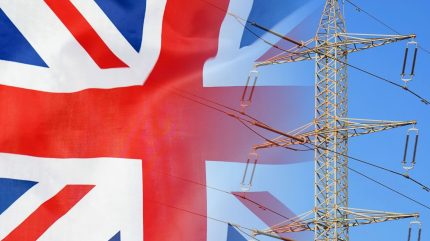
The UK government aims to cut down household energy bills by £150 ($198) a year on average by shifting some costs to general taxation and abolishing a scheme that funds home efficiency upgrades.
Chancellor of the Exchequer Rachel Reeves, who presented the Budget yesterday, announced the transfer of 75% of the cost of ‘Renewables Obligation’ to general taxation.

Discover B2B Marketing That Performs
Combine business intelligence and editorial excellence to reach engaged professionals across 36 leading media platforms.
Treasury documents estimate this change will save an average of £2.3bn each year.
This move comes as energy bills have been increasing despite a drop in wholesale power and gas prices, putting pressure on ministers to find better ways to cover rising grid and policy costs. Household energy bills in the UK are the most expensive in Europe, reported Bloomberg.
Additionally, from April next year, the government will scrap bill charges that currently pays for energy-efficiency upgrades for fuel-poor households.
The Energy Company Obligation (ECO) currently compels energy companies to fund measures such as insulation and new heating systems for households for those that have low-income.

US Tariffs are shifting - will you react or anticipate?
Don’t let policy changes catch you off guard. Stay proactive with real-time data and expert analysis.
By GlobalDataEnergy UK chief executive Dhara Vyas said: “The proposal to cut the ECO programme significantly reduces the overall funding available for vital home improvements that would lower bills.
“It will also have an impact on the companies and supply chains that have made plans to invest and recruit and have again been hit by a change in policy.”
Last month, the ECO scheme faced criticism after the National Audit Office highlighted risks of possible fraud and substandard work within the programme.
Environmental groups, however, condemned the decision to abolish the scheme outright instead of improving it, reported Reuters.
Greenpeace UK head of politics Ami McCarthy said: “Eliminating insulation support and its funding could leave millions of households stuck in fuel poverty, living in cold, damp homes.”
These changes will reduce Ofgem’s price cap by £134 in January, bringing it down to £1,624.
The Budget also allocates an additional £1.5bn for the Warm Homes Plan, adding to the £13.2bn announced earlier this year.





